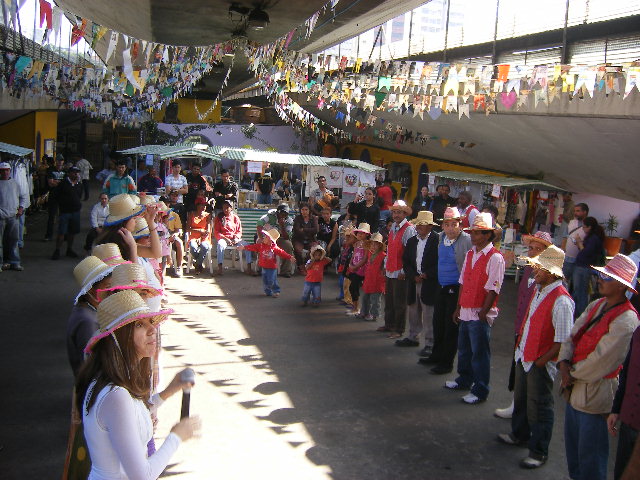Additionally, they participate in a series of counseling programs with the aim of reconstructing their life histories and "rescuing" their humanity. One such activity involves writing letters to their family members.
Walter has mobilized a team of wealthy housewives to write the letters as Association members dictate them, thus providing both a therapeutic counseling session for the homeless individuals, and an eye-opening experience that allows people removed from the problem to understand it better and begin to see street people as human beings with complicated life histories.
In addition to providing their own basic services, the Association gives homeless people a mailing address and a closet to store their belongings; promotes collective cultural events, sports, and other leisure activities; and provides a space for them to discuss their experiences with each other. Existing members serve as outreach workers to draw other homeless adults into the program. Perhaps most importantly, the Association gives street adults a sense that they belong to something, a novel feeling given their extreme state of abandonment and social disassociation.
Walter is also forming a cooperative employment agency of street adults. Many such employment agencies exist and recruit homeless people for day labor, often under exploitative conditions. By creating their own agency, members not only will be involved in a productive activity and generate their own income, but also they will be in control of setting their own working conditions and rights.
Establish partnerships with professionals who can lend assistance
Although part of –, this seems to be a different idea and could be established as a different Project.
Walter recognizes that if he invests all of his efforts in working directly with street people, he will never catch up. The numbers of homeless people are increasing too rapidly, and the amount of time it takes to achieve full social integration and independence of single homeless person is immense. With this in mind, he has made the strategic decision to work increasingly with various sectors of society, to sensitize them to the problem and identify appropriate ways they can participate in the solution.
Walter has established a diverse array of partnerships with professionals who can lend various types of assistance. For instance, he is working with medical professionals and psychologists to set up unique drug and alcohol rehabilitation programs within the Association. He is channeling the efforts of other professionals into various job training activities, technical assistance, management consulting for the cooperative, and one-on-one counseling.
Walter is also creating spaces for discussion and debate regarding homelessness. He has established a series of fora in universities (targeted especially to social work students) and businesses, through which he challenges people to diagnose Brazil's homelessness problem in more complex ways, and to identify where they can best contribute to the solution. He seeks to institutionalize these events as regularly scheduled activities and to integrate them into existing university course curricula.
Walter sees the Association as a demonstration site that will serve as a model for homelessness programs in other cities. Once consolidated, he will actively spread his approach throughout Brazil.
Walter Varanda seeks to simultaneously rescue the individual humanity and dignity of existing street adults and transform the way society views and treats the problem of homelessness. To do so, he has developed a three-pronged approach. First, he is working directly with the adult street population, empowering them to organize and provide basic services for themselves. He has established an association run for and by street people, which addresses their basic needs and helps them to reintegrate into society. By identifying their most pressing needs and collectively designing appropriate solutions to their own problems, this association of street people breaks the pattern of assistance still prevalent among Brazilian churches, nongovernmental organizations, and government programs.
Second, Walter is working with existing social service organizations and other professionals who want to help. He is changing the dominant model of paternalistic service provision among organizations that currently work with street people. He is helping them transform their methodology from one that encourages passivity and dependence to one that allows street people to take control of their own lives. Walter is also reaching out to various sectors–upper-class, middle-class, business people, professionals, housewives, and others–to help them understand the complex problem of homelessness and involve them in constructive opportunities through which they can contribute to the solution.

